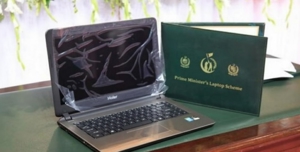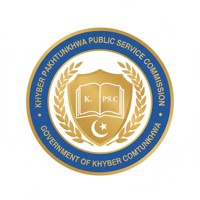

Board Papers in Class 5th and Class 8th Announced in Punjab, Rawalpindi
In 2026, the Punjab government has resolved to resume board level examination on Class 5th and Class 8th learners in government schools in Rawalpindi. This is one of the changes in the assessment policy of the province, with the Punjab Education Curriculum Training and Assessment Authority (PECTAA) taking over the tasks of organizing and administering the tests, which used to be performed by the Punjab Examination Commission.
Board Paper Schedule 2026
Based on the published schedule that will be distributed to schools, admission forms to the yearly examinations will be received within the period of November 3rd to November 15th, 2025. Class 5th written examinations will commence on February 9th, 2026 and Class 8th papers will conduct between February 16th to February 24th, 2026. The board has put the March 31st, 2026 date of announcing results in both classes. These schedules highlight a tight time schedule through which schools need to be registered and documented early to have time to prepare papers safely and make logistical preparations.
Who is going to administer the exams and why is a change important?
The exams will be administered by a new entity called the Punjab Education Curriculum Training and Assessment Authority, which will be a merged entity with responsibilities of curriculum, teacher training and student assessment. The establishment of PECTA brought together what was initially distributed among various provincial organizations with the above aim of enhancing unity in curriculum and assessment policy. According to the officials, reintroduction of board-style assessments in such early grades will be done with the intention of introducing students to standardised testing formats, as well as increasing the level of learning before secondary schooling.
Preperation to Past Papers
Implications in Schools, Teachers & Students
Schools are also being requested to get admission lists ready, collect fees (where possible) and fill out the form along the short November deadline. PECTA will provide centers, invigilation rosters and exam security arrangements in liaison with the district education offices. The guardians and parents will need to take note of the deadline and make sure that the students will have the necessary documentation and attendance reports prepared because submission past the deadline can lead to loss of a chance to participate in the event thanks to the schedules of the tight timeline.
Past Papers
Teacher Union Resistance & Equity Issues
Teachers unions have been highly opposed to the policy claiming it is a repeat of the tactics that had already been used in the past and that found themselves problematic. Teachers leader organisations claimed it would put an extra burden on the pupils in the government schools who will have to take the examinations should the teachers be allowed to choose whether or not to take the examination or to be treated differently by the government. The union leaders warned that poor results in early standardized testing would force the already weak children, especially girls in the low-income category, out of the schools or provoke the shift to the private sector that is not subjected to testing or is less limited. The unions claim that the policy will increase education inequities rather than solving inherent quality problems.
The Problem of Administration And Logistics
The reintroduction of board examination at younger levels (when grades are lower) has some operational challenges: the composition of child-friendly question papers, invigilator training to work in child-friendly centres, and the safe transportation and storage of the examination materials. Education administrators should also implement appeals and recheck systems that are more relaxed to younger applicants and make parents aware clearly of the consequences of marking and promotion. The tightened schedule in which registration and paper logistics have to be completed adds a burden on the district offices to do an unblemished job.

Stakeholder Protection And Advice
Education experts advise a number of precautions in case the plan is implemented: a gradual implementation with pilot districts, clear criteria on exemptions (where it is not mandatory), additional assistance and remedial classes to students under threat, and a clear policy on the involvement of the private-sector to prevent favoritism. District authorities and schools are also encouraged to offer counselling and parental outreach in order to ensure that a high stakes framing does not serve to demoralize young learners accidentally. There are practical concerns that may be revealed by piloting the system in a limited number of districts before rolling it out on the large scale and assist in developing child-friendly formats of assessment.
What Needs To Be Done By the Parents And The Teachers
The November 3rd-15th, 2025 admission window and make sure that the child is at the school has filed the required paperwork. Educators and school administrators need to initiate internal preparation of things such as attendance checking, syllabus reviewing and communication plans and clarification against PECTA or district offices on subject lists, paper formats, and the recheck system. Union leaders have urged schools to negotiate with the education department to help the schools settle pending grievances first before implementation.
Looking ahead
The implementation of new assessment schedule in Punjab, specifically in Rawalpindi and possibly other districts, will depend on the guidelines given by the PECTA, fairness in implementation of the scheme in the public and private sectors, and a support system which would not allow any unwanted dropouts. Since the results are provisionally available on March 31st, 2026, the stakeholders will have a very short period of time to develop systems that are secure, fair and developmentally suited to younger learners.















